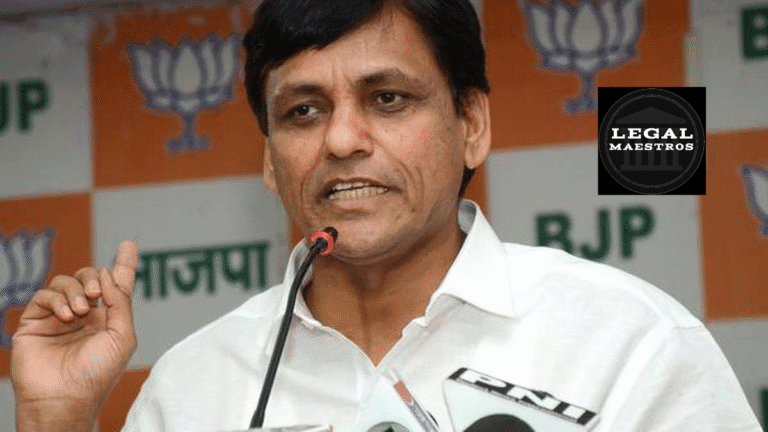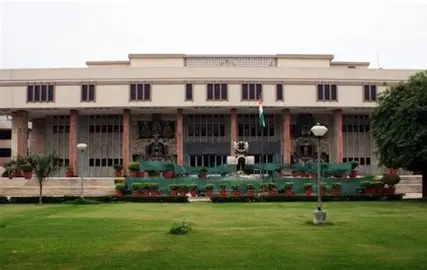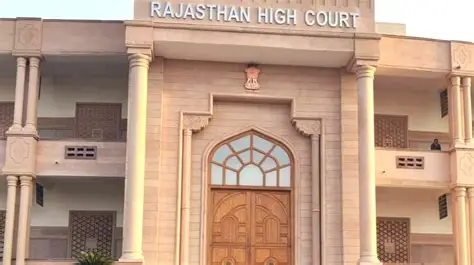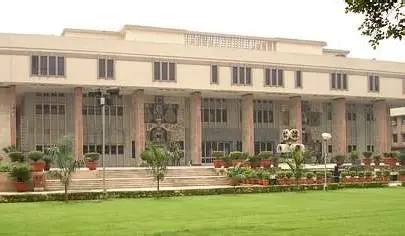
Examining the Constitutionality of Muslim Reservation in Karnataka?
Introduction
The controversy regarding Muslim reservation in Karnataka has been a controversial topic in recent times. The quota policy by the state allowing for a 4% proportion to be assigned as Other Backward Classes for Muslims has occasioned legal debates, political wranglings, and street demonstrations. The case deals with some fundamental tenets of the Indian Constitution, notably equality and ban against discrimination in a religious direction. With comments coming in both from the ruling government and opposition parties, debate has focused on whether reservation according to religious identity conforms to values enshrined in the Constitution or whether its consideration is subject only to social and educational backwardness.
Historical Background
The policy of reservations in Karnataka is rooted long ago in the past. Under princely Mysore back in the initial decades of the 20th century, a beginning was taken towards enhanced representation of non-Brahmin classes. Reservation was also brought in 1921 in the interest of various communities, including Muslims, as a part of the overall effort to lift socially backward groups. Following independence in India, though, the policies saw a dramatic shift. In post-independent India, reservation for Muslims in Karnataka was again brought in 1962 on the basis of recommendations made by different commissions. With time, following a sequence of judgments and the countrywide introduction of the Mandal Commission proposals in 1992, the quota for Muslims was established at 4% in the OBC category in 1995. This figure was regarded by most as required to end the historical disadvantages and socio-economic backwardness of some sections of the Muslim community.
For More Updates & Regular Notes Join Our Whats App Group (https://chat.whatsapp.com/DkucckgAEJbCtXwXr2yIt0) and Telegram Group ( https://t.me/legalmaestroeducators )
For More Updates & Regular Notes Join Our Whats App Group (https://chat.whatsapp.com/DkucckgAEJbCtXwXr2yIt0) and Telegram Group ( https://t.me/legalmaestroeducators ) contact@legalmaestros.com.
Legal and Constitutional Framework
The constitutionally sanctioned framework of reservations is established under Articles 15 and 16 of the Indian Constitution. Article 15 bars discrimination based on religion, race, caste, sex, or place of birth. However, the Constitution also empowers the state to make special provision for the promotion of any socially and educationally backward classes of the citizens through Articles 15(4) and 16(4). These provisions empower the government to grant reservations in public employment and education to groups that are underrepresented.
Critics of religion-based reservations argue that the Constitution’s prohibition against discrimination extends to ensuring that no group is favored solely on the basis of its religious identity. The Supreme Court has maintained that reservations must be based on objective criteria such as social and educational backwardness. In other judgments, the top court has ruled that the fact of being a member of a specific religion per se does not qualify a community for the benefits of reservation unless objective facts establish that the community is educationally or socially backward. This legal test has been at the core of most arguments and court cases, such as those relating to the distribution of a 4% quota for Muslims in Karnataka.
Political Debate and Judicial Scrutiny
Muslim reservation in Karnataka has polarized political parties and triggered hot debates in the legislative bodies and national parliament. The Congress party government in Karnataka has defended the 4% quota on the ground that it is not a question of religion but one of socio-economic backwardness. From this point of view, the majority of Muslims in the state have traditionally been denied opportunities, and the reservation is only aimed at enhancing their role in government contracts, which subsequently will enhance their economic prospects.
The Bharatiya Janata Party (BJP) and some other parties have also criticized the policy as unconstitutional. They argue that reservation on the basis of religious identity alone goes against the spirit of equality guaranteed by the Constitution and causes fissures in society. BJP leaders have contended that the policy is a form of vote-bank politics and an attempt to appease one religious community at the expense of others rather than deal with real issues of social inequality. They cite Supreme Court observations that reservations should be grounded in quantifiable measures of social and educational backwardness and not religion.
Various legal objections have been made over the years. For example, plans to abolish or reorganize the 4% Muslim quota have invited judicial examination. The Supreme Court has upheld certain reservation policies on social backwardness, but has also warned that advantages of reservation may not be based on religion in isolation. Historical court decisions declared attempts to roll out reservations entirely on religious considerations in other states as well and have contributed more fuel to fire the controversy within Karnataka.
The political battle was heated up when the erstwhile BJP government in Karnataka under Basavaraj Bommai had tried to eliminate the Muslim quota and distribute the percentage to other groups like the Vokkaligas and Lingayats. This move was opposed by different groups and challenged in court, which resulted in a stay by the Supreme Court. Later, the Congress government reinstated the 4% reservation for Muslims, paving the way for another bout of controversy and debate.
Social Implications and Economic Realities
Apart from legal and political considerations, the Muslim reservation issue in Karnataka has important social and economic implications. The quota proponents assert that the vast majority of Muslims in the state still suffer from acute socio-economic problems, such as poor education access, poor job opportunities, and endemic poverty. According to this perspective, the reservation is a corrective step aimed at leveling the playing field for a historically marginalized community. Supporters argue that by offering reservations in government contracts, the state can encourage entrepreneurship among Muslims, which will translate into better socio-economic conditions and higher integration in the mainstream economy.
Others warn, however, that reservation on the basis of religious identity has the potential to reduce a multifaceted social situation to oversimplification. They argue that Muslim society is not homogenous. Within the community itself, there are huge disparities in socio-economic status, with some being severely backward and others being relatively prosperous. If a blanket 4% quota is applied, the policy could result in advantaging those better placed within the community, rather than targeting the most disadvantaged. Additionally, critics contend that reservations must be made on the basis of precise criteria that address quantifiable measures of social deprivation as opposed to community identity in general.
The controversy also reaches into the wider social fabric of India. Critics are concerned that reservations based on religion could create more polarization and social division. They contend that even if well-meaning, such policies could cement communal identities and make other groups feel aggrieved. The ultimate aim of reservations, they maintain, must be to achieve genuine equality and social integration, not to expand existing cleavages.
Judicial Precedents and Legal Interpretations
Judicial rulings over the years have been instrumental in framing the reservations debate. The historic Indra Sawhney judgment of 1992 held that reservations must be on the basis of social and educational backwardness, and not religious identity. In this judgment, the Supreme Court highlighted the importance of objective parameters to ascertain whether a group is socially and educationally backward. The same principles have been used in later cases, resulting in a judicial consensus that the state can exercise the power to provide affirmative action but must do so in a way that does not infringe on the principle of equality.
Later judgments have also made it clear that any policy of reservation should be proportionate and should not result in arbitrary or excessive grant of benefits. The court has always taken the view that reservations cannot be made on grounds of religion alone, and that any policy in this regard will have to pass strict scrutiny so that it can be justified on the basis of objective facts. These judicial criteria are especially pertinent in the context of Karnataka’s 4% Muslim quota, where critics have contended that the policy has been formulated on religious grounds and not on perceptible evidence of backwardness.
Future Outlook and Policy Considerations
The current controversy surrounding Muslim reservation in Karnataka will most likely have long-term effects on both state policy and national discourse on affirmative action. As political mobilization increases and the legal challenges to the policy persist, the result of this debate could provide a critical precedent for future reservation planning. Policy-makers could be compelled to embrace a more sophisticated strategy that considers the multifaceted realities of communities, instead of imposing sweeping, blanket policies.
In the years ahead, it will be necessary for the government to collect detailed information on socio-economic indicators from different sections of the Muslim community. Such information may assist in the development of policies that are targeted, transparent, and defensible in terms of constitutional norms. There is also an increasing need for a dialogue among stakeholders—politicians, community leaders, legal scholars, and social scientists—to arrive at a consensus on what is real backwardness and how to deal with it best.
At the national level, the controversy is one of how to balance affirmative action with the constitutional promise of equality. The Karnataka controversy is a reminder that policies of reservation need to be regularly reviewed and evolved so that they can deliver what they are meant to without doing unintended damage or entrenching social cleavages.






